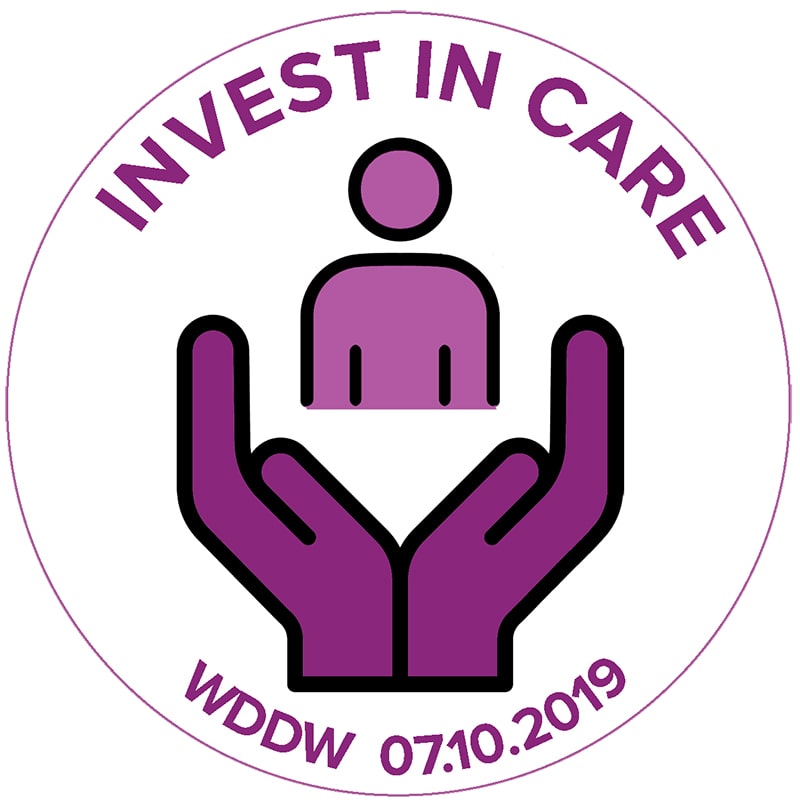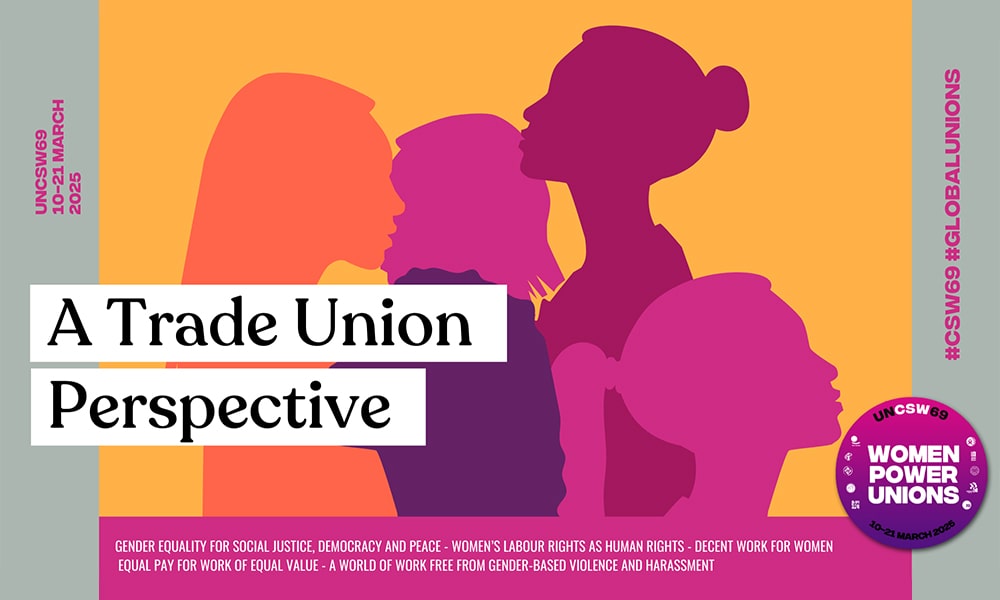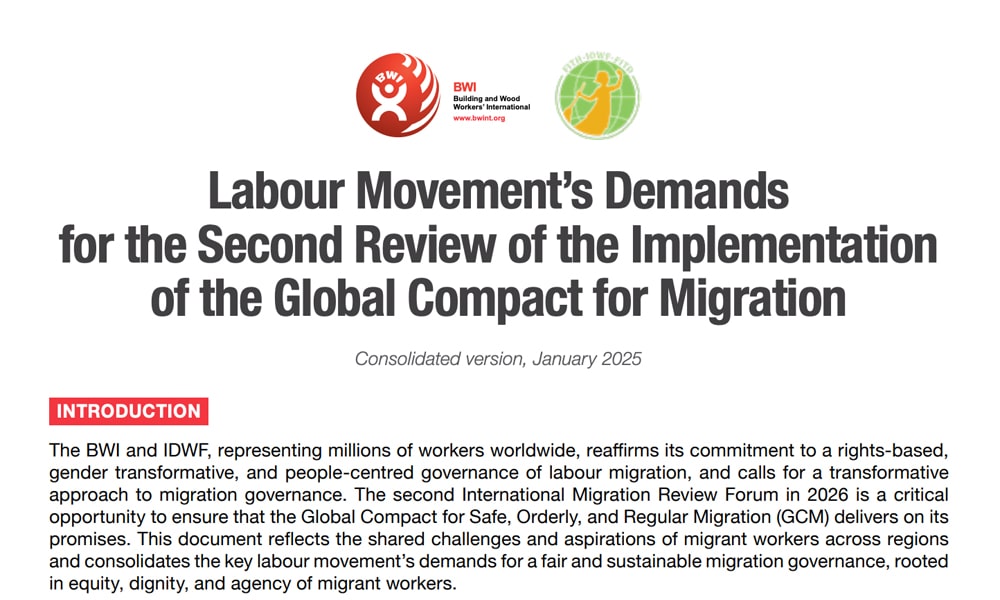On this year’s World Day for Decent Work, we celebrate care workers and demand a fair deal for their work through recognition, living wages, equal pay for work of equal value and safe and healthy working environments that are free from discrimination, violence and harassment.
Details
World Day for Decent Work:
Unions unite for investment in care for decent jobs and gender equality
Joint Statement by ITUC, UNI Global Union, Public Services International, Education International, IUF and International Domestic Workers Federation
On this year’s World Day for Decent Work, we celebrate care workers and demand a fair deal for their work through recognition, living wages, equal pay for work of equal value and safe and healthy working environments that are free from discrimination, violence and harassment.
Care work is indispensable. In 2015, 2.1 billion people, young and elderly, were in need of care. By 2030, this number is projected to increase by 200 million. The International Labour Organization has stated that current deficits in the quality and provision of care services will create a severe and unsustainable global care crisis and increase gender inequalities at work, if not adequately addressed.
The availability and quality of care services depends on a well-trained workforce that has decent working conditions and wages commensurate with their skills and competencies. However, care work is systematically undervalued and underpaid. Care workers – the majority of whom are women, and disproportionately migrant women and women of colour – too often experience discrimination, job insecurity, including zero-hours contracts, low pay, poor working conditions and violence and harassment at work. Many must work multiple jobs just to make ends meet. Austerity, public disinvestment and outsourcing accelerate precarious and informal conditions for care workers, especially for the growing numbers of domestic workers and home care workers. The involvement of unaccountable and poorly regulated multinationals, such as Orpea and Fresenius, is driving down the quality of care jobs and care services.
Cuts in public care services and jobs have had a double impact on women who are finding it harder to obtain and remain in quality jobs, whilst mainly filling the care gap left by cuts as unpaid carers. Globally, women perform 72.6 per cent of all unpaid care work. This constitutes a major barrier to women entering the labour market or moving to better quality jobs, hampers their ability to earn a decent living and limits their autonomy and the full exercise of their rights.
Investment in care as a public good linked with global respect of the rights of all workers, including migrant workers, to union representation, collective bargaining and living minimum wages can reverse current trends and avert a global care crisis. Joining trade unions to bargain for better pay and conditions and access to training and life-long learning is crucial to promoting decent work for care workers and will help to resolve labour shortages in the care sector.
Research has proven that investing the equivalent of two per cent of gross domestic product in the care economy would provide millions of quality jobs, help tackle gender gaps in employment and reduce gender inequalities in both paid and unpaid care work.
On World Day for Decent Work, care workers and their unions stand united and committed to securing decent care jobs and services.
Care workers deserve decent work.
We call on all governments to invest in care for a better future for all, for gender equality and justice, and for sustainable living.

Source: World Day for Decent Work, 7 October 2019 – “Investing in care for gender equality”






